From Ashamed to Empowered: Surviving the Shame Spiral
(TRIGGER WARNING: Sexual Assault)
Experiencing a shame spiral after being raped in my mid-30s was a harrowing ordeal.
The perpetrator was calculated—he knew how to manipulate and hurt me, leaving bruises hidden under my clothes, except for the handprints on my neck.
Afterward, in a daze of fear and confusion, I managed to gather my essentials—keys, phone, and bottoms—and sought refuge at my best friend’s house.
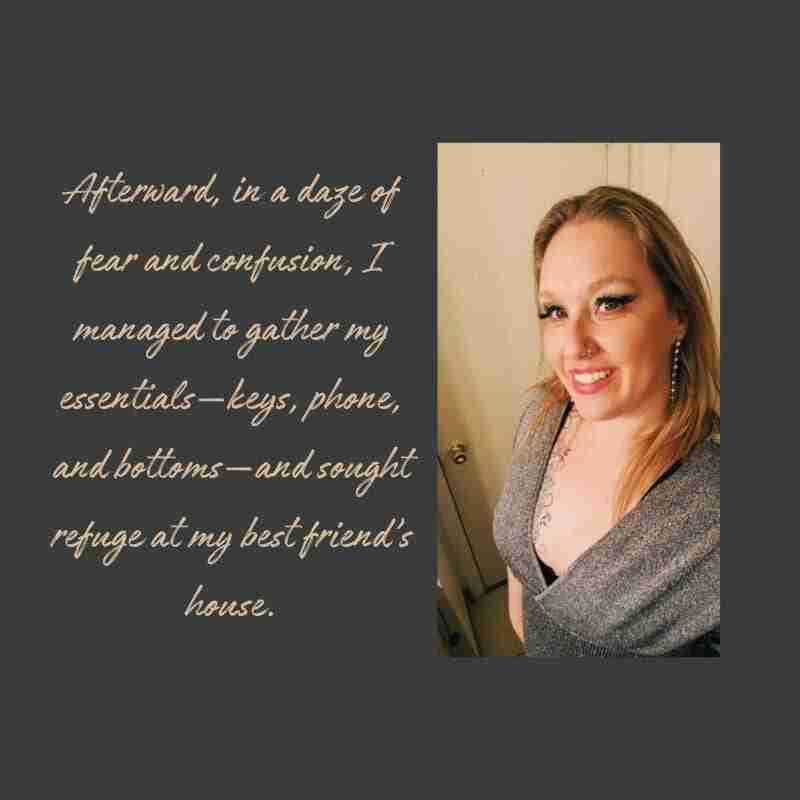
We cried together as she helped clean me up. She, too, had dealt with similar trauma in her past. Despite the severity of the assault, we did not go to the police. Why? We felt ashamed.
The Relentless Shame Spiral: Battling Self-Blame and Stigma
As a woman who has endured rape, the overwhelming shame I grapple with is deeply intertwined with societal perceptions and victim-blaming attitudes common in American culture.
Questions like “What were you wearing?” or “Why were you there?” insinuate personal responsibility, creating an environment where victims internalize blame.
Despite my rational understanding that I am not at fault, the weight of shame persists.
Did I inadvertently send the wrong signals? Could I have stopped this? These questions haunt me, feeding the shame spiral.
The stigma associated with being a rape survivor adds another layer of anguish. I feel perceived as damaged or tainted, fearing judgment if I were openly discussed my experience.
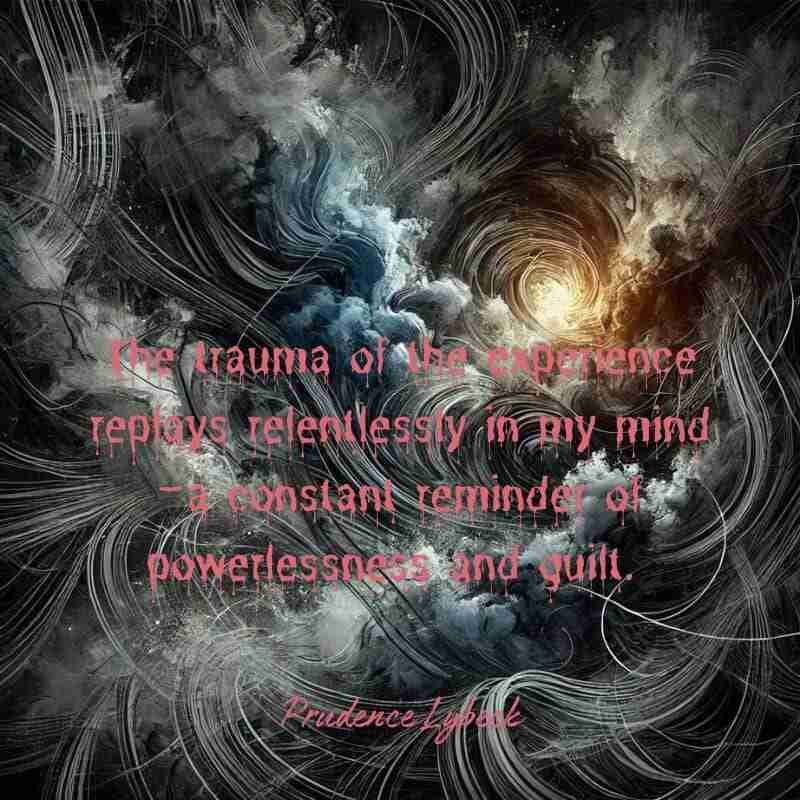
This fear of judgment intensifies my isolation and deepens the shame spiral. Negative self-talk and self-blame become constant companions, eroding my self-worth and heightening my feeling of inadequacy.
Throughout my upbringing, I was taught to be wary and vigilant. Yet, I feel I have failed to protect myself. This failure to prevent the assault amplifies my shame, perpetuating a cycle of self-criticism and internal conflict.
The trauma of the experience replays relentlessly in my mind—a constant reminder of powerlessness and guilt. Despite knowing logically that I bear no responsibility for what happened, the emotional turmoil persists.
Trapped in Silence: The Fear and Isolation of a Rape Survivor
Will anyone believe me if I speak out?
Would the legal process re-traumatize me?
These fears fuel my reluctance to seek justice or share my story, trapping me in a suffocating silence that only deepens the shame spiral.
Lack of adequate support from friends, family, and the broader societal structures further isolates me. It feels as though no one truly understands the magnitude of my pain, adding to my feelings of shame and alienation.
Media representations of rape victims often sensationalize our suffering, stripping away our humanity and further feeding into the shame narrative.
The pressure to remain silent about my assault weighs heavily, as societal norms suggest it is easier for everyone if victims do not speak out.
This internal conflict between the urge to conceal my trauma and the desperate need to unburden myself contributes significantly to the shame spiral.
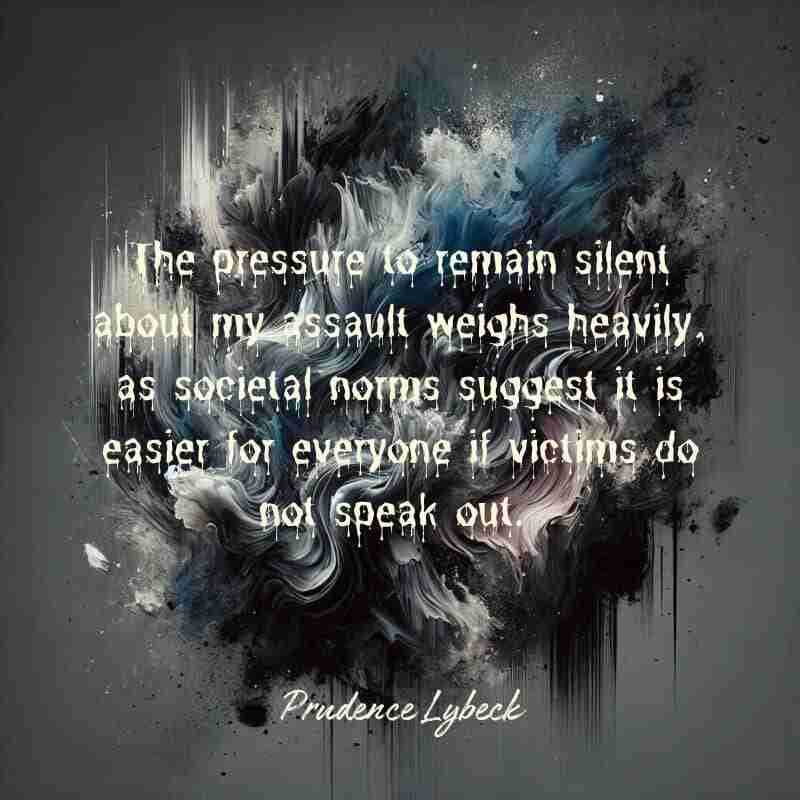
In the midst of this overwhelming shame, I yearn for a world where understanding and support for survivors like me are more readily available.
I dream of a society where victims are not weighed down with shame and guilt but are instead embraced with empathy and compassion. Finding a safe space to explore and address these feelings is crucial for healing and growth.
The Concept of Shame and Its Dynamics
Shame is one emotion that is complex and deeply personal, marked by a profound sense of embarrassment, guilt, or unworthiness.
It arises from the perception of failing to meet societal or personal standards, often worsened by critical judgments from others or oneself.
With trauma, such as rape, shame manifests as a debilitating force that distorts self-perception and perpetuates cycles of negative self-talk and self-blame.
The dynamics of shame are intricately linked to various factors, including cultural norms, societal expectations, personal beliefs, and past experiences.
These elements converge to shape how individuals perceive themselves and their worthiness, influencing their responses to traumatic events and subsequent emotional states.
Understanding the nuances of shame is crucial in handling its impact on mental health and well-being.
Shame Spirals: Unpacking the Cycle
A shame spiral is a destructive pattern where feelings of shame trigger negative self-talk, leading to a further decline in self-esteem and intensifying the experience of shame.
This cyclical process often begins with an initial shame trigger—a situation, thought, or memory that evokes feelings of embarrassment or guilt. As individuals internalize these emotions, their self-perception deteriorates, prompting more negative self-talk and increasing the sense of unworthiness.
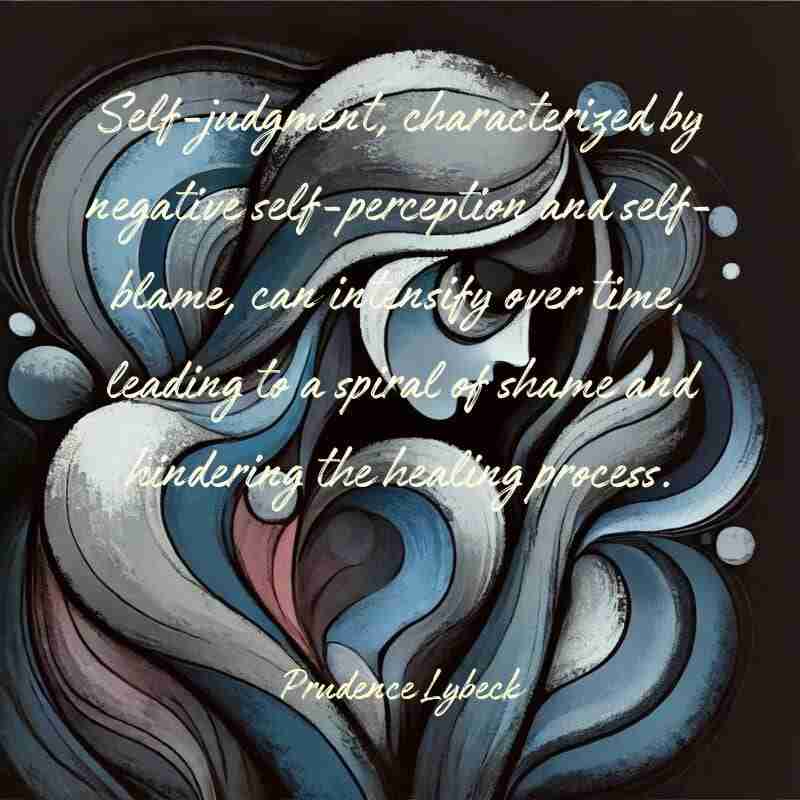
Shame thrives on secrecy and isolation, making it crucial to reach out for support and introduce new topics of thought to break the spiral.
Common triggers for shame spirals include perceived failures, social judgments, traumatic experiences, and societal stigmatization.
For survivors of trauma such as rape, shame spirals may be ignited by the internalization of blame, fear of judgment, or the pressure to conform to unrealistic societal expectations.
These shame triggers perpetuate a cycle of shame that can be difficult to break without intervention and support.
How to Cope With a Shame Spiral: The Role of Self-Compassion and Resilience
Navigating through a shame spiral requires cultivating self-compassion and resilience—essential components of healing from trauma and rebuilding self-esteem.
Self-compassion involves treating oneself with kindness, understanding, and acceptance, especially in the face of adversity or perceived shortcomings. It counters the harsh self-criticism inherent in shame spirals, offering a path toward self-acceptance and emotional healing.
Seeking therapy from mental health professionals who use compassion-focused therapy or acceptance and commitment therapy (ACT) can help process and accept feelings of shame.
Resilience, on the other hand, encompasses the ability to bounce back from setbacks and challenges, including traumatic experiences.
It involves developing coping strategies, seeking support, and fostering a sense of inner strength and perseverance.
Building resilience empowers individuals to confront shame-induced vulnerabilities and navigate through difficult emotions with courage and determination.
The Soul of Shame: Insights and Reflections
In “The Soul of Shame,” Curt Thompson explores how the English language, particularly in American culture, often oversimplifies the concept of shame.
By reducing its complexities to a singular definition, this oversimplification fails to capture the profound emotional and psychological impacts of shame, especially for individuals navigating trauma like sexual assault.
Self-judgment, characterized by negative self-perception and self-blame, can intensify over time, leading to a spiral of shame and hindering the healing process.
Thompson’s work challenges us to expand our understanding of shame beyond mere embarrassment or guilt, acknowledging its multifaceted nature and pervasive influence on personal and societal dynamics.
Thompson’s insights resonate deeply with my journey through shame after experiencing rape. His exploration of shame as a deeply fixed societal construct highlights how cultural attitudes and norms shape our perceptions of self-worth and acceptance.
We can begin to undo its destructive influence by recognizing shame as more than a fleeting emotion. It is a pervasive force that invades personal narratives and societal structures.
Changing Our Thinking Away from Shame
Changing our thinking away from shame involves intentional steps and practices aimed at promoting self-compassion, resilience, and emotional well-being.
These steps include:
Recognize and Acknowledge Shame
Be attuned to the presence of shame in thoughts and emotions. Identify triggers and patterns that contribute to shame spirals.
Challenge Negative Self-Talk
Replace self-critical thoughts with compassionate and realistic self-talk. Challenge distorted beliefs that perpetuate feelings of inadequacy or unworthiness.
Practice Self-Compassion
Treat oneself with the same kindness and understanding as one would offer to a friend facing similar challenges. Acknowledge that experiencing shame is a normal response to difficult circumstances.
Seek Professional Help
Consider therapy or counseling to address deep-seated shame and its underlying causes. Therapists provide guidance, support, and therapeutic interventions tailored to manage shame and promote healing.
Build a Support Network
Surround oneself with supportive individuals who offer empathy, validation, and understanding. Sharing experiences with trusted others reduces feelings of isolation and fosters a sense of connection.
These people could be friends, family, or even strangers in a support group who have experienced something similar.
Learn Grounding Techniques
Practice mindfulness, grounding exercises, or relaxation techniques to manage overwhelming emotions associated with shame.
Techniques such as deep breathing, meditation, or sensory awareness promote emotional regulation and break the cycle of shame.
Educate Others
Raise awareness of shame’s impact and complexities to challenge societal attitudes and misconceptions.
Advocate for open dialogues that promote empathy, understanding, and support for individuals navigating shame-related challenges.
Breaking Free of the Shame Spiral: Healing and Empowerment After Trauma
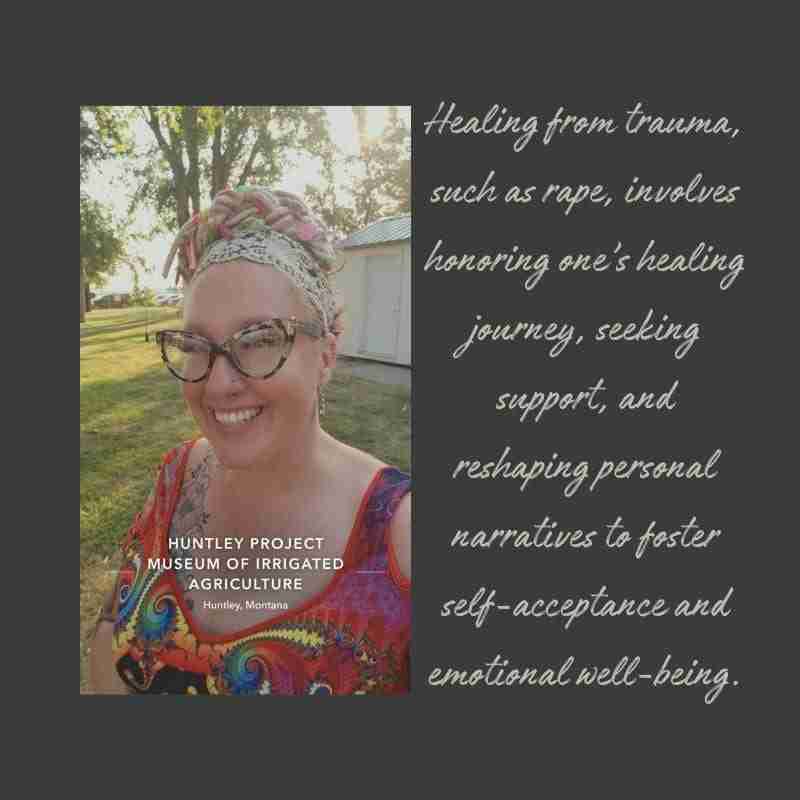
By embracing these proactive steps and integrating them into daily life, individuals can cultivate resilience, strengthen self-compassion, and break free from the grip of shame.
Healing from trauma, such as rape, involves honoring one’s healing journey, seeking support, and reshaping personal narratives to foster self-acceptance and emotional well-being.
Navigating a shame spiral after experiencing rape is a deeply personal journey. It is marked by challenges, setbacks, and moments of resilience.
Understanding the dynamics of shame, practicing self-compassion, and seeking support are crucial steps in healing from the emotional wounds inflicted by trauma.
By fostering a culture of empathy, understanding, and support, we can work together toward creating a better society. One where survivors feel empowered, valued, and free from the burdens of shame and stigma.
Have you experienced the negative emotions associated with a shame spiral? Share your story with us in the comment section below.






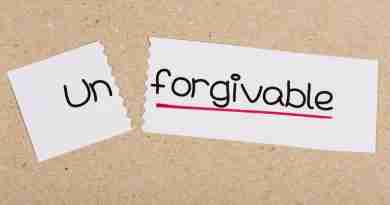



Thank you for sharing your story! I am inspired by your healing journey. I am so sorry that this happened to you – it is so violating in all the ways; but I am incredibly grateful that you’re healing and humbled by your strength and commitment to helping others – in all the ways. Your inner strength is palpable and contagious. Thank you. -j
We are so thankful that she chose to share this part of her story with us. We hope everyone who has experienced something similar will be reminded they are not alone and inspired to keep going. Thank you so much for reading and commenting. Please consider joining our newsletter and getting more stories like this delivered to your email monthly.
Thank you for your kind words! Each day is better.